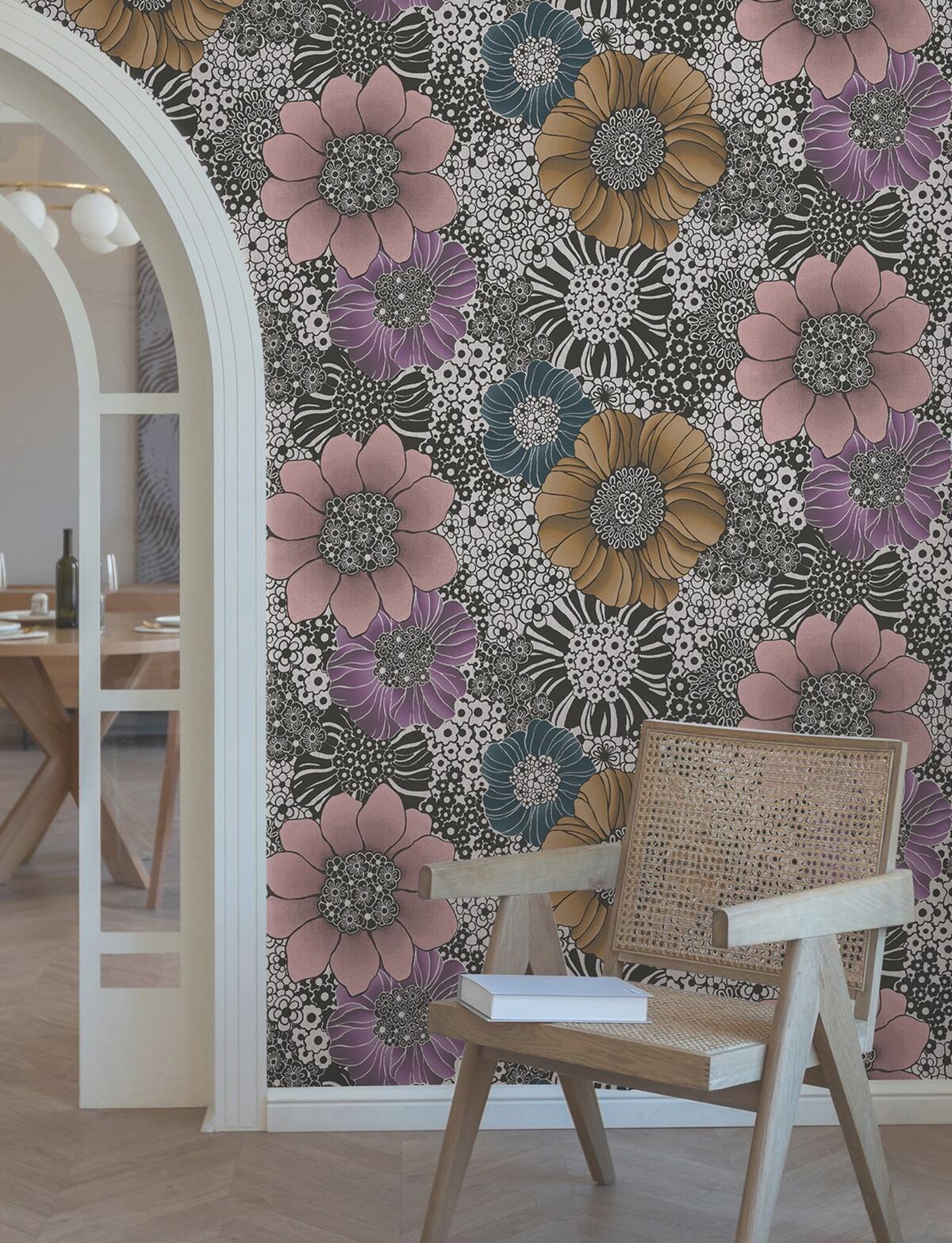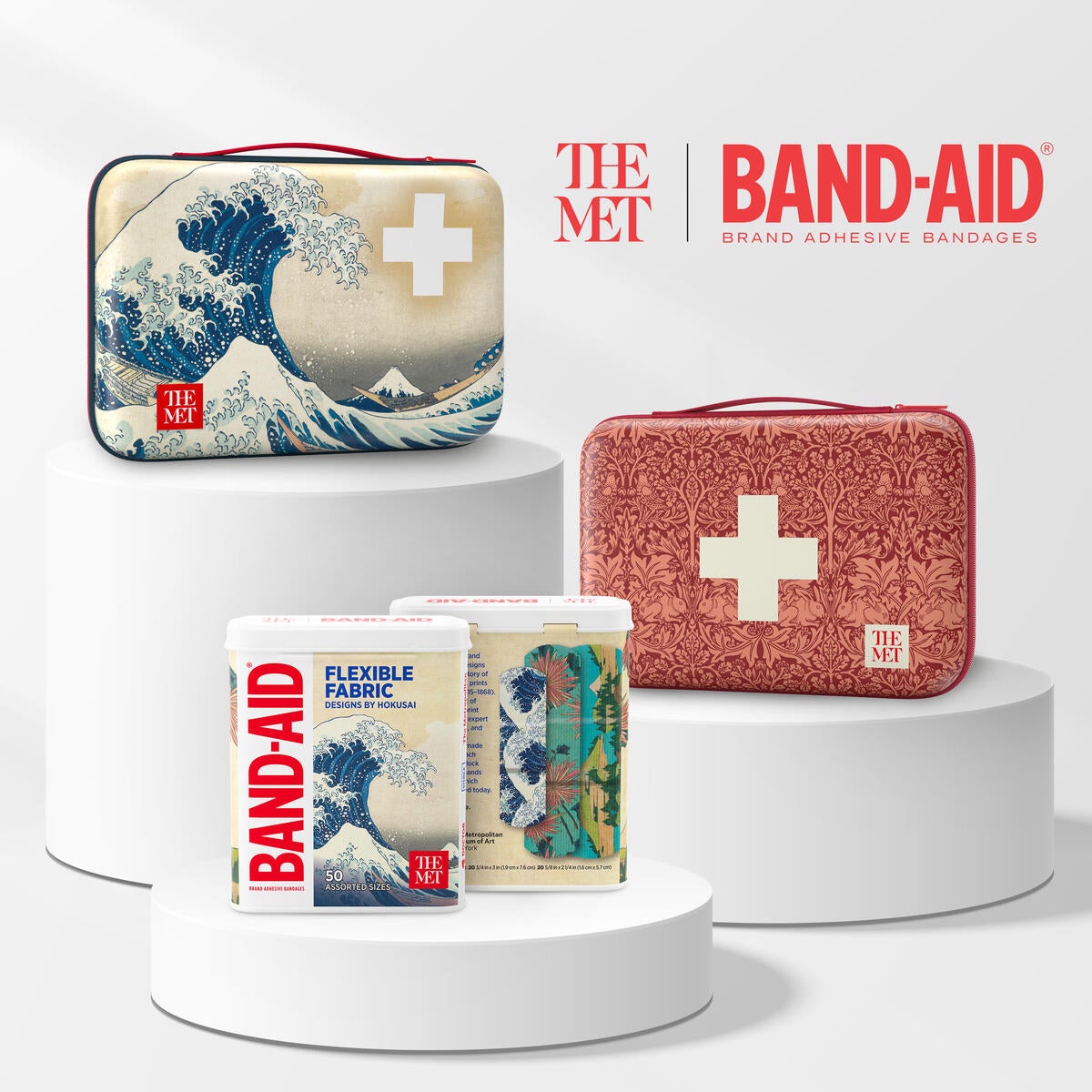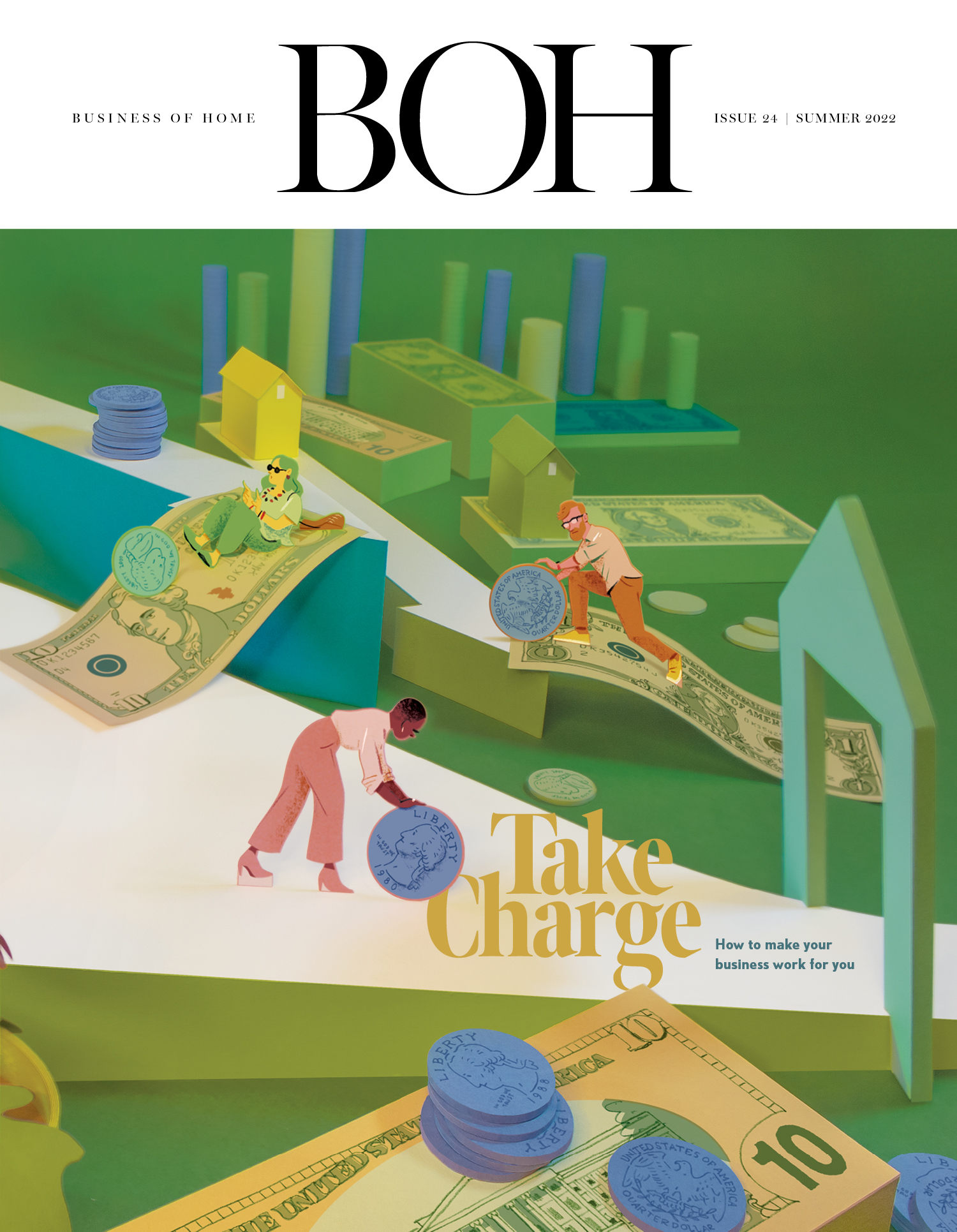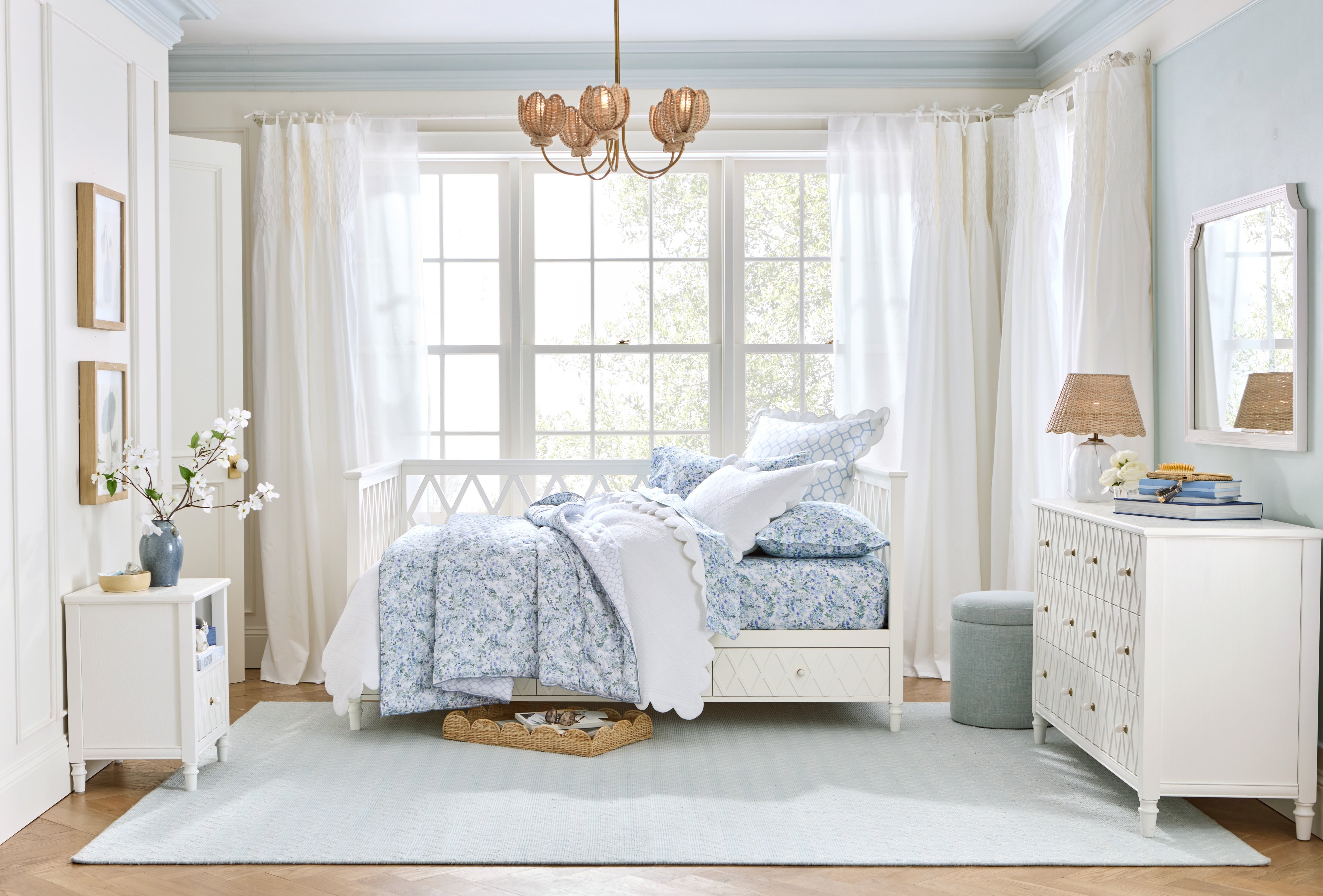This week in design, an unusual new wellness hack involves plugging your bed sheets into a socket, which proponents claim helps tap into the “earth’s natural energy”—a practice known as “grounding.” Stay in the know with our weekly roundup of headlines, launches, events, recommended reading and more.
Business News
President Trump signed an executive order last week to rescind a federal rule that restricts the number of gallons per minute that flow through appliances like showerheads, dishwashers, washing machines and toilets, the AP reports. The standard—which stems from a 1992 energy efficiency law and was upheld by previous administrations—was designed to promote water and energy conservation. According to the Environmental Protection Agency, showers are responsible for roughly 20 percent of the average American household’s daily indoor water use, and heating water accounts for about one-fifth of the average home’s energy consumption. The order echoes a similar rule Trump implemented during his first term, which did not result in significant product changes from showerhead manufacturers (some even opposed the new rule, which the Biden administration then reversed). It remains to be seen whether or not brands will take the same tack the second time around.
Prada announced it is acquiring Versace from Capri Holdings in a $1.38 billion deal last week, The New York Times reports. The purchase—which Prada funded by borrowing more than 1 billion euros—is expected to close in the second half of the year, pending approval from regulators. Despite an overall slowdown in the luxury sector, Prada has seen success in recent years, reporting a 17 percent increase in revenue in 2024. Versace, however, has not been immune to the downturn: According to Capri, the brand’s revenue is expected to drop to $810 million in the current fiscal year, down from $1 billion in 2024. For the luxury business landscape, the deal marks a shift in power away toward the Italian conglomerate, effectively ending New York–based Capri’s attempt at creating an American luxury group on par with LVMH and Kering.

Mineola, New York–based furniture supplier Linon Home Decor has acquired Memphis-based company Coast to Coast Imports. The deal includes Coast to Coast’s branding, property assets and finished goods inventory, along with the intellectual property and trademarks for subsidiary brands Coast2Coast Home, Accents by Andy Stein, Jadu Accents, Treasure Trove Accent Furniture and Pieces in Paradise. The purchase price was not disclosed. The acquisition marks a new start for Coast to Coast, which entered receivership last July after defaulting on its credit agreement, and saw its former furniture and equipment auctioned off for more than $10 million earlier this year. Under Linon’s ownership, the company will be relaunched with existing inventory and plans for new product development.
Ohio-based Berlin Gardens has acquired fellow outdoor furniture manufacturer Windward Design Group, Furniture Today reports. The terms of the deal were not disclosed. Based in Punxsutawney, Pennsylvania, Windward will continue to operate as usual with its current team of employees. According to Berlin Gardens, the purchase will help the manufacturers broaden both their product portfolios and market reach.
On April 23, Jim Thornton, who is a digital strategist and product leader specializing in AI-powered solutions for the home design industry, shows you how to capitalize on your unique strengths to create an online presence that captures the attention of both potential clients and powerful search engines. Click here to learn more and remember, workshops are free for BOH Insiders.
Though millennials had largely dominated the housing market over the past decade, the past two years have seen a reversal of that trend, with baby boomers surpassing them as the largest homebuying group in 2023 and 2024. As Fast Company reports, baby boomers accounted for 42 percent of home purchases between July 2023 and July 2024, while millennials fell to 29 percent from 38 percent the year before, according to data from the National Association of Realtors. The shift is largely driven by declining home affordability in recent years, with the income needed to afford an average American home up 79 percent since 2020. That’s less of a problem for the older generation—with half of older boomers and two out of five younger boomers purchasing homes in cash—and more of an issue for millennials, with more than 90 percent of buyers under 44 years old financing their purchases.
Wayfair CEO Niraj Shah issued a letter to vendors last week urging them to hold off on price increases, Furniture Today reports. In the document, which was obtained by FT, Shah went on to encourage vendors to take a “wait-and-see approach,” stating that competitors who do implement price hikes might face decreased demand. Elsewhere, he advised vendors to pass on added costs only when essential (noting that price increases will be passed on to customers) and to raise prices on other platforms first—citing Wayfair’s practice of rolling out pricing updates immediately and the desire to remain competitive with fellow retailers. “As we navigate this period of disruption, we shared suggested actions with our suppliers—just as we have in past market cycles,” the company wrote in a statement to FT when reached for comment. “Our goal is mutual success and continuing to provide customers with the best value in the category.
Launches and Collaborations
York Wallcoverings has teamed up with Italian fashion house Missoni for a peel-and-stick wallpaper line. The collection features seven of Missoni’s trademark patterns—including vibrant florals and the brand’s iconic stripes and zigzags—on removable nonwoven materials.
Pottery Barn Kids & Pottery Barn Teen have partnered with luxury lifestyle brand Aerin for a collection of kitchen, outdoor, baby, kid and teen furniture. The collaboration draws inspiration from founder Aerin Lauder’s love of florals and intricate patterns, with woodland motifs, scalloped edges and classic gingham prints that can be found across the entire product assortment.
The Metropolitan Museum of Art—together with ubiquitous first aid brand Band-Aid—has debuted a collection of bandages and care products with imagery borrowed from iconic artists and designers. The assortment includes two first aid bags emblazoned with Williams Morris’s Brother Rabbit and Hokusai’s The Great Wave, along with bandages featuring details from each of the artist’s additional works, such as The Lake at Hakone in Sagami Province and Yellow Chrysanthemums on a Blue Ground.

Recommended Reading
Investors took a major hit after the Trump administration announced sweeping taxes on imports earlier this month, wiping out $6.6 trillion on Wall Street over the course of two days. As E.B. Solomont and Libertina Brandt write for The Wall Street Journal, even though the market rebounded after Trump announced a 90-day pause on certain tariffs, many wealthy home buyers were spooked. Real estate agents are now reporting that many of their high-end buyers have paused or entirely pulled out of pending deals, citing broader stock market uncertainty for their decision.
Over the last few years, social media has seen an influx of new design creators—spanning seemingly every category, from traditional design vloggers to space-planning feng shui experts, man-on-the-street housing-cost interviewers and everything in between. For The New York Times this week, Amy X. Wang writes about how this “Cambrian explosion of D.I.Y. influencers,” has helped shift design media appetites away from more attainable home projects and toward those that are further out of reach.
Stretching back centuries, marble has long served as a status symbol in design and architecture, solidifying its current place as the de facto luxury kitchen and bath finish of choice. However, as much as homeowners love marble, it doesn’t exactly love them back. For The Washington Post, Jolie Kerr questions the material’s viability in an era where kitchens are increasingly multiuse living areas, pointing out that its functional flaws (“porous, easily stained, damage-prone”) start to stand out in spaces where it is most commonly used.
Cue the Applause
The American Home Furnishings Alliance granted $35,000 in educational grants to the children of home furnishings industry workers as part of its annual Solution Partners Scholarship Program. Established in 2000, the program provides financial assistance to students aspiring to attend university, community college or technical school—this year, 12 recipients received grants. For the full list of winners, click here.





























